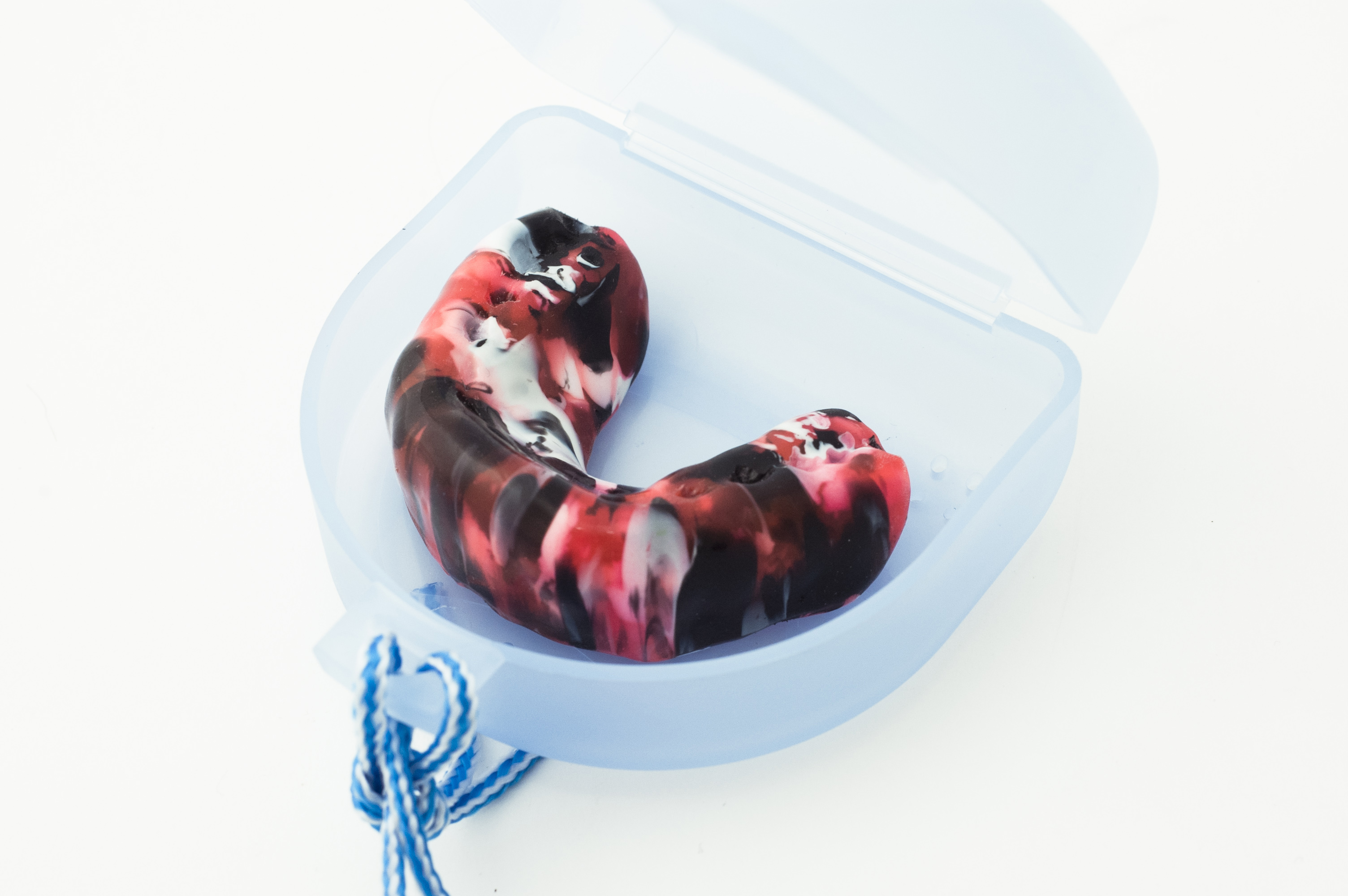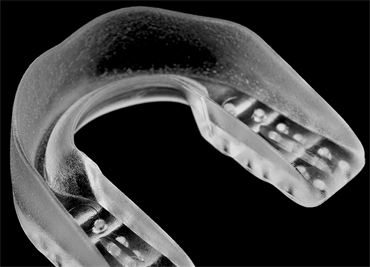
Understanding A Denture Reline
13/10/2013Braces: Maintenance and Care
03/12/2013TYPES AND USES
Mouth guards are special coverings that are placed over the teeth, and in most cases, used for tooth protection from potential damages associated with problems like teeth grinding and tooth injury.
From adults to children, almost anyone can use mouthguards, especially when the patient needs this appliance to maintain his/her oral health. Usually, people engaged in contact sports or any other activity that has potential risk of tooth injury opt for this protective dental device. For patients experiencing the problem of teeth grinding, dentists recommend wearing night mouthguards that have special nocturnal bite plates or bite splints for preventing tooth damage.
In most cases, mouth guards only cover the upper teeth. However, there are cases when mouth guards are used for lower teeth, especially when used for treating dental issues. It is important to understand that an ideal mouth guard is comfortable, has tear-resistance, boasts durability and doesn’t cause any breathing or speech issues.

TYPES OF MOUTHGUARDS
The “Stock Mouth” Type
These are available as ready to wear mouth guards. These mouth guards are sold at sporting good stores as well as department stores, and are typically preferred by individuals seeking mouth protectors for sports. The drawback to these protectors is that they can’t be adjusted well because of their bulky nature. And an improper fit can cause breathing and talking difficulties, which is why many dentists won’t recommend using these mouth guards.
The “Boil and Bite” Type
These mouth guards are also available at different sporting goods stores. In terms of fit, they are better than the “stock mouth” type. Boil and bite mouth guards are made from thermoplastic materials. Before being placed on the teeth, these mouthguards are first softened in hot water and then shaped around the wearer’s teeth using pressure from the fingers and tongue.
The “Custom-fitted” Type
These are custom-built in a professional dental lab. Custom-fitted protectors offer the most satisfactory results because they are prepared using instructions from the dentist. The process starts with creating tooth impression, which is used for molding the mouth guard with the help of special materials. As compared to other types, custom-fitted mouth guards are costlier but offer better results.
Mouth Guards and Sports
It isn’t uncommon to experienced accidents, trips, falls and injuries during sports or other physical activities. And this is why; using mouth guards during such activities can play an important role in limiting the risk of oral or dental injuries. In fact, mouth guards can even help in avoiding dental problems like chipped or broken teeth, tooth nerve damage or tooth loss.
Mouth Guards and Braces
Many dental experts recommend braces-wearers to use mouth guards. Because any kind of facial injury during sport or intense physical activities could damage braces, mouth guards are a must-have dental appliance for braces-wearers. However, it is best to consult the dentist or orthodontist for determining the particular type of mouth guard that will be most suitable to use with braces.

